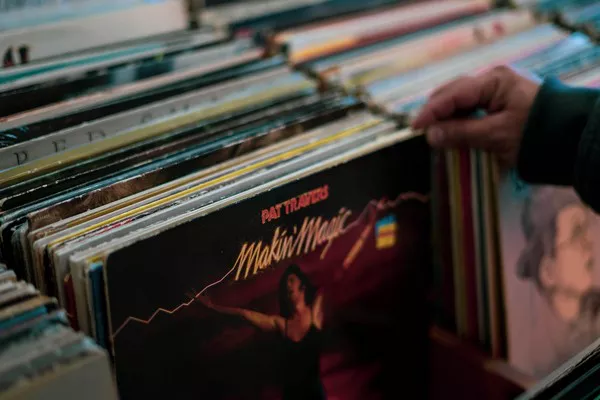The music industry has undergone seismic shifts over the years, constantly adapting to technological advancements, changing consumer behaviors, and global market dynamics. From the era of vinyl records to the digital revolution, the industry has witnessed numerous transformations. However, pinpointing the single biggest change in such a dynamic landscape is a complex task, as multiple factors have significantly reshaped the way music is created, distributed, and consumed.
The Digital Revolution: Redefining Music Consumption
Undoubtedly, one of the most profound changes in the music industry has been the advent of the digital revolution. With the rise of the internet and digital technologies, music consumption underwent a radical transformation. The transition from physical formats like vinyl, cassette tapes, and CDs to digital formats, including MP3s and streaming platforms, has fundamentally altered how audiences access and engage with music.
Streaming Services: Reshaping Distribution and Revenue Models
Streaming services have emerged as the cornerstone of music consumption in the digital era. Platforms like Spotify, Apple Music, and Pandora have revolutionized the way people listen to music, offering vast libraries of songs accessible at any time, anywhere. This shift in distribution models has not only changed how music reaches audiences but has also transformed revenue streams for artists and labels, challenging the traditional sales-based model.
Impact on Artist Discovery and Exposure
The digital revolution has democratized the music industry by providing independent artists with unprecedented opportunities for exposure and discovery. Social media, streaming platforms, and digital marketing tools have empowered artists to connect directly with their fan base, eliminating some of the barriers to entry that previously existed within the industry. This has led to a surge in diverse voices and genres, allowing niche artists to find dedicated audiences worldwide.
Technological Innovations: Shaping Music Creation
Technological advancements have significantly influenced the way music is created and produced. The evolution of digital audio workstations (DAWs), software synthesizers, and innovative production tools has revolutionized the music-making process. Artists now have access to a wide array of tools and software that enable them to produce high-quality music from the comfort of their own homes, disrupting the traditional studio-centric approach to recording.
See Also: Understanding Music Preferences?
AI and Machine Learning in Music
The integration of artificial intelligence (AI) and machine learning technologies is another transformative change in the music industry. These technologies have been employed in various aspects, including music composition, curation, and recommendation systems. AI algorithms analyze vast amounts of data to predict listener preferences, curate personalized playlists, and even generate music autonomously, raising intriguing questions about the role of AI in the creative process.
Evolving Business Models and Monetization Strategies
The shift from physical sales to digital consumption has compelled the industry to explore new business models and monetization strategies. While streaming services have provided a convenient way to access music, debates around fair compensation for artists persist. The emergence of subscription-based models, micro-licensing, and blockchain technology for royalty distribution reflects ongoing efforts to address these challenges and create more equitable systems.
Globalization and Cultural Exchange
The digital era has facilitated unparalleled global connectivity, fostering cross-cultural exchanges in the music landscape. Artists can reach audiences worldwide with ease, leading to the fusion of different genres, sounds, and cultural influences. This interconnectedness has not only enriched the musical tapestry but has also opened doors for collaborations and partnerships across borders, contributing to a more diverse and inclusive industry.
Challenges and Opportunities in the Streaming Era
While streaming platforms have brought convenience to listeners and expanded the reach of music, they also pose challenges. Issues such as low royalty rates for artists, algorithmic biases, and the impact on smaller, independent musicians have sparked debates about the sustainability and fairness of the streaming ecosystem. However, these challenges have also prompted discussions and initiatives aimed at reshaping streaming platforms for the benefit of all stakeholders involved.
Live Music and Fan Engagement
Despite the digital revolution’s dominance, live music remains a cornerstone of the industry, offering unique experiences and revenue streams for artists. The convergence of technology and live events has enabled innovative fan engagement strategies, such as virtual concerts, live streams, and interactive experiences, especially during times when physical gatherings faced restrictions, showcasing the adaptability of the industry to changing circumstances.
Conclusion
The music industry has undergone a series of transformative changes driven by technological advancements, shifting consumer behaviors, and globalization. While the digital revolution and streaming services stand out as pivotal changes, the landscape continues to evolve. The integration of technology in music creation, the quest for fair compensation models, and the global exchange of musical influences signal a constantly evolving industry. Embracing these changes while addressing challenges will be crucial in shaping a sustainable and inclusive future for the music industry.


























